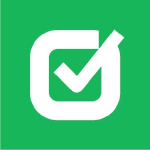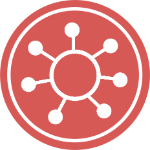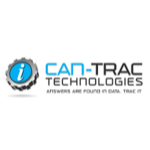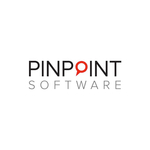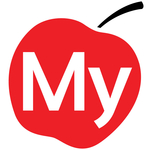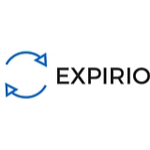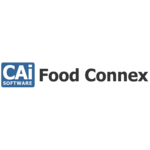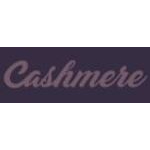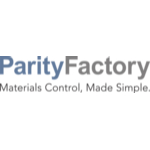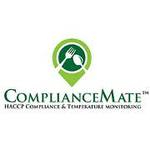List of Best Food Traceability Software
Showing 10 of 18 productsFoodDocs is a solution for businesses in the food industry. This innovative software is designed to streamline and simplify food management processes, ensuring compliance with regulatory standards and guaranteeing the safety of food products. With Fo...Read FoodDocs Reviews
Smart HACCP software allows for automated management of food safety hazards and the identification of critical control points (CCP) or preventive control points (PCP) using risk assessment models, all through our digital food safety plan...Read Smart HACCP Reviews
iTrace is the innovative software designed to revolutionize your tracking process. With its advanced features and user-friendly interface, iTrace streamlines your workflow and provides accurate and timely results. Say goodbye to tedious tracking meth...Read iTrace Reviews
Date Check Pro, is a solution for all your background check needs. With our state-of-the-art software, you can easily verify important information about potential dates, partners, and employees. No more guesswork or relying on outdated methods, Date...Read Date Check Pro Reviews
MyProduce is a software designed to streamline your production process and increase efficiency. With its user-friendly interface and powerful features, MyProduce takes the hassle out of managing your daily production tasks. Say goodbye to tedious pap...Read MyProduce Reviews
Expirio, is a solution for managing your business expirations and deadlines. With its user-friendly interface features, Expirio streamlines the process of tracking and renewing important dates, ensuring that you never miss an expiration again. Say go...Read Expirio Reviews
Food Connex is a software solution designed specifically for the food industry. With its intuitive interface features, it streamlines inventory management, sales tracking, and purchasing processes for businesses of all sizes. Say goodbye to tedious m...Read Food Connex Reviews
Cashmere is an innovative software that aims to revolutionize the way businesses handle their financial transactions. With its user-friendly interface features, Cashmere simplifies the process of managing money, making it the go-to solution for compa...Read Cashmere Reviews
ParityFactory is a industry-leading software designed to streamline and optimize your production processes. Say goodbye to unnecessary waste and inefficiency with our innovative and user-friendly platform. With ParityFactory, you can expect increased...Read ParityFactory Reviews
ComplianceMate is an innovative solution for businesses looking to streamline their food safety monitoring process. With its advanced technology, ComplianceMate enables real-time temperature and task logging, ensuring compliance and peace of mind. Sa...Read ComplianceMate Reviews
- What Is Food Traceability Software?
- Top Reasons Why Businesses Need Food Traceability Software?
- What Are the Top Key Features of Food Traceability Software?
- What Are the Top Benefits of Food Traceability Software?
- What Are the Steps to Choose the Right Food Traceability Software?
- What Are the Types of Food Traceability Software for Different Industries?
- What Are the Technology Trends for Best Food Traceability Software?
- What Are the Deployment Options for Food Traceability Software?
What Is Food Traceability Software?
Food traceability software refers to a technological solution specifically developed to oversee and track the progression of food items across the entire supply chain, commencing from the supplier and concluding with the consumer. Maintaining vigilance over the source, safety, and quality of food products at every stage of their distribution process is beneficial.
This encompasses the process of documenting and monitoring various manufacturing details, such as batch numbers, product date codes, storage dates, and other distinctive data. Food traceability software facilitates the ability of firms to track and examine any potential problems that may occur during the food production or marketing procedures.
The software facilitates expedited identification of food safety concerns by promptly identifying the potential source of contamination in order to enhance detection efficiency. This measure aids in safeguarding customers against potential outbreaks of food-borne illnesses, while also equipping companies with the necessary data to diagnose and rectify underlying issues.
Moreover, enterprises have the capability to employ traceability software in order to gain a deeper comprehension of consumer demands, enhance product excellence, and promptly address any customer grievances related to product quality.
Food traceability software plays a crucial role in facilitating compliance with industry, government, and legal regulations pertaining to safety, quality, and customer satisfaction. This measure serves to mitigate potential legal obligations for organizations and enhance customer confidence.
Food traceability software is a robust instrument that facilitates compliance with food safety regulations, ensures the delivery of safe and superior products to consumers, and fosters the establishment of confidence with clientele.
Top Reasons Why Businesses Need Food Traceability Software?
1. Improved Food Safety: The utilization of food tracking software enables enterprises to promptly initiate the retrieval and withdrawal of hazardous food products from retail shelves prior to their consumption.
2. Increased Visibility into Suppliers: Food traceability software offers comprehensive information regarding the provenance of food, so empowering enterprises to make informed decisions in selecting dependable suppliers that can ensure the provision of high-quality products with a verifiable traceability record.
3. Streamlined Regulatory Compliance: The traceability software food industry is utilized by food producers, processors, and distributors to effectively preserve records and manage activities that are pertinent to regulatory compliance.
4. Reduced Wastage: Business enterprises have the capability to utilize various technological solutions such as RFID technology, barcodes, and other digital systems to promptly and precisely detect expired, impaired, or contaminated food items, thereby guaranteeing their proper disposal.
5. Product Traceability: Top food traceability software assists enterprises in precisely monitoring and tracing the movement of food throughout many stages of its trajectory, commencing from the farm and concluding at the retail outlet. This technology guarantees prompt identification and resolution of any issues encountered during the process.
6. Automated Business Processes: The implementation of food traceability system software enables the automation of routine activities, such as the allocation of unique identifiers to food products and the input of relevant data. This automation liberates teams from monotonous responsibilities, enabling them to allocate their efforts towards more critical undertakings.
7. Improved Inventory Management: Food traceability software offers comprehensive information regarding the origins of raw materials and the final products, enabling enterprises to effectively monitor their stock and detect any instances of missing or pilfered items.
8. Enhanced Data Security: The utilization of food traceability system software enhances the level of security for sensitive data by restricting access just to individuals possessing authorized credentials.
9. Automated Documentation and Reporting: The traceability software food industry is a valuable tool for businesses as it enables the automation of paperwork and facilitates the generation of reports in a timely and precise manner. This technology plays a crucial role in minimizing both time and labor expenses.
10. CBI Protection: Food traceability software enables enterprises to safeguard sensitive business data, including supplier information and price, thereby ensuring the confidentiality of such proprietary information.
11. Enhanced Retailer and Distributor Relationships: Food traceability software is a valuable tool that aids businesses in enhancing the efficiency of their interactions with retailers and distributors.
12. Increased Productivity: The utilization of traceability software food industry provides organizations with the capability to transition towards data-driven processes, hence facilitating enhanced output and improved outcomes.
13. Improved Quality Control: Top food traceability software enables enterprises to effectively monitor the origins of ingredients, the procedures involved in packaging, and the dates of expiration for shelf life, thus enhancing their skills in quality control.
14. Reduced Fraud: The traceability software food industry has the potential to aid enterprises in the identification, prevention, and mitigation of counterfeiting endeavors initiated by external entities.
15. Sustainable Procurement: Food traceability software aids enterprises in the monitoring and management of their carbon emissions, so facilitating their progress towards establishing a more sustainable food supply chain.
What Are the Top Key Features of Food Traceability Software?
The top key features of food traceability software include:
1) Automated Tracking: The technology facilitates the seamless and expeditious monitoring of every stage of the food production process for food producers in real-time.
2) Visibility: The food traceability system software offers comprehensive transparency into the food production process, enabling companies to enhance their supervision of all stages of processing and potential origins of contamination.
3) Traceability: Facilitates expedient and precise tracking of commodities along the supply chain of enterprises, extending to the level of individual ingredients.
4) Accuracy: This platform offers precise and current information pertaining to each phase of the production process, aiding in the early detection of potential quality concerns prior to their escalation into more severe consequences.
5) Monitoring: Enables enterprises to actively monitor their production operations in real-time and promptly identify any deviations at an early stage, mitigating the risk of these deviations escalating into more critical problems.
6) Reporting: The platform offers comprehensive and readily available reports that facilitate performance evaluation, risk identification, and implementation of appropriate remedial measures for businesses.
7) Audit Trails: Facilitates the ability of companies to conduct comprehensive evaluations of their operational procedures and ascertain adherence to regulatory frameworks governing food safety.
8) Alerts & Notifications: Alerts and notifications play a crucial role in the identification and mitigation of potential sources of contamination, hence ensuring the maintenance of food safety standards.
What Are the Top Benefits of Food Traceability Software?
1. Improved safety of products: The implementation of top food traceability software facilitates the ability of food producers to monitor and record pertinent details regarding ingredients and products throughout the entirety of the production process.
This capability empowers manufacturers to promptly and effortlessly identify and mitigate instances of contamination or spoilage, hence guaranteeing the provision of secure and nutritious products to consumers.
2. Reduced waste and costs: The implementation of food traceability system software enables food manufacturers to mitigate waste by closely monitoring the quality of individual products throughout the entirety of their distribution process.
The implementation of a quality system has the potential to effectively detect and identify recalled items before to their distribution to consumers, hence mitigating the financial burdens associated with product recalls.
3. Enhanced customer service: Through the utilization of traceability software, clients can gain access to enhanced information regarding the product and its origin by effectively monitoring each stage of the product's journey from its source to the point of delivery.
This information facilitates clients in making informed decisions regarding product selection, hence enhancing overall customer happiness.
4. Improved visibility into the supply chain: The best food traceability software offers an improved perspective of the supply chain, enabling businesses to effectively manage potential hazards and assure timely delivery of products to the appropriate clients.
5. Streamlined recalls: The expeditious and effective administration of product recalls plays a crucial role in safeguarding customers and mitigating substantial financial losses.
The utilization of traceability software enables efficient and expeditious identification of recalled products and facilitates the monitoring of their movement, hence enabling prompt implementation of corrective measures.
6. Improved product consistency: Traceability software plays a crucial role in enabling food manufacturers to maintain product uniformity and quality by meticulously monitoring and documenting the many stages of manufacturing for each individual product.
Moreover, this technology enables manufacturers to promptly examine and discern any potential quality concerns that may emerge.
7. Enhances compliance: Traceability software plays a crucial role in assisting organizations in fulfilling and upholding regulatory obligations, thereby guaranteeing that all products adhere to the requisite standards. This obviates the necessity of manual product assessment, enabling organizations to promptly identify any goods that fail to meet the requisite criteria.
What Are the Steps to Choose the Right Food Traceability Software?
1. Do research: Initially, conduct comprehensive research on the various best food traceability software solutions now available in the market, then undertaking a comparative analysis of their respective features and functionalities. This analysis entails an examination of the features, pricing models, user evaluations, and customer service of the respective entities.
2. Set criteria: Please delineate your distinct requirements and establish a set of criteria for the purpose of picking the appropriate software.
When evaluating the appropriateness of certain strategies, it is crucial to take into account many factors such as the scale of the organization, intricacy of the supply chain, efficiency of operational processes, and any regulatory obligations that the company must adhere to.
3. Identify your priorities: Recognize the significance of diverse attributes and ascertain the relative importance of these attributes to one's business.
4. Assess the options: Conduct a comprehensive analysis of each product included in your shortlist and evaluate the extent to which they align with your predetermined criteria. Inquire about the many attributes, functionality, potential for expansion, and assistance provided for the product.
5. Make a decision: After doing a thorough evaluation of the available products, it is imperative to engage in a comprehensive decision-making process in order to select the most suitable food traceability software for your organization.
What Are the Types of Food Traceability Software for Different Industries?
Food traceability software is a software application specifically developed to assist enterprises in effectively monitoring the movement of food items throughout the whole supply chain, starting from the production stage to the final consumption.
The maintenance of product safety and regulatory compliance is crucial in ensuring that all processed and distributed commodities adhere to the highest standards established by relevant governing authorities.
There exist various categories of food traceability software tailored to cater to the specific needs of diverse sectors:
1. Harvest Tracking Software: This particular program facilitates the monitoring of the origin of agricultural commodities and the documentation of harvest data throughout the entirety of the production cycle. It finds application in various sectors, including but not limited to produce, dairy, poultry, grain, and seafood.
2. Quality Assurance Software: Quality assurance software is utilized to monitor and ensure adherence to regulatory mandates, such as those pertaining to food safety, traceability, and labeling. The system has the capability to function alone or be seamlessly incorporated into existing supply chain management systems.
3. Supply Chain Software: Supply chain software facilitates the synchronization of items' transportation between different nodes within the supply chain. This tool is frequently employed for the purpose of monitoring inventory, assessing suppliers, and analyzing consumer data.
4. Recall Management Software: The utilization of recall management software aids businesses in effectively managing food recalls by facilitating the prompt identification of the recalled goods and enabling the tracking of its distribution process from distributors to suppliers.
What Are the Technology Trends for Best Food Traceability Software?
Currently, The best food traceability software market is witnessing several technology advances that contribute to enhanced tracking and monitoring of the food supply chain, hence ensuring the safety of food sources.
These trends encompass:
• IoT and Sensors: Numerous food traceability system software are currently utilizing Internet of Things (IoT) technologies. Sensors are employed to collect data pertaining to the flow of food, encompassing its producers, harvesters, processors, and distributors throughout its trajectory.
The Internet of Things (IoT) has the capability to furnish organizations with real-time data, enabling them to ascertain the precise whereabouts of their products.
• Blockchain: The utilization of blockchain technology is increasingly prevalent in the realm of food traceability system software due to its inherent immutability and secure ledger system.
This technology facilitates the establishment of a digitally traceable and highly transparent record, documenting the entire trajectory of a food item from its initial source to its ultimate consumption by the end user.
• Automation: The popularity of automated food traceability system software is on the rise as they possesses the capacity to optimize and mechanize various processes within the food supply chain. One potential use of these tools is the mitigation of human labor and expense burdens related to data entry, operational procedures, and personnel training.
• AI and Machine Learning: The utilization of Artificial Intelligence (AI) and machine learning has the potential to enhance the efficiency of the entire food traceability process. Predictive analytics can be employed to ascertain and oversee possible risks inside the supply chain.
Artificial intelligence (AI) can also be employed for the purpose of detecting patterns that may indicate potential food safety hazards, as well as aiding in the development of measures to mitigate these risks.
In general, the current developments in food traceability software are facilitating the enhancement of food safety measures and the monitoring of food progression along its supply chain.
Moreover, these technologies are facilitating the development of a food supply chain that is characterized by enhanced security, transparency, and efficiency.
What Are the Deployment Options for Food Traceability Software?
The implementation of food traceability software can be customized to suit the unique requirements of a company:
1. Cloud-Based: The utilization of cloud-based technology is widely favored for the implementation of food traceability software.
Cloud-based solutions are characterized by their high degree of flexibility and relative simplicity in implementation, which distinguishes them from alternative deployment choices.
2. On-Premise: On-premises solutions are frequently employed by organizations lacking access to a cloud platform and need full autonomy over their data.
3. Mobile: The popularity of mobile applications for food traceability is on the rise due to their capacity to provide users with convenient and efficient access to data from any location, surpassing the speed of alternative deployment models.
4. Hybrid: The hybrid approach offers a synthesis of the benefits associated with both cloud and on-premise solutions, affording enterprises the flexibility to select the option that most effectively aligns with their specific requirements.
